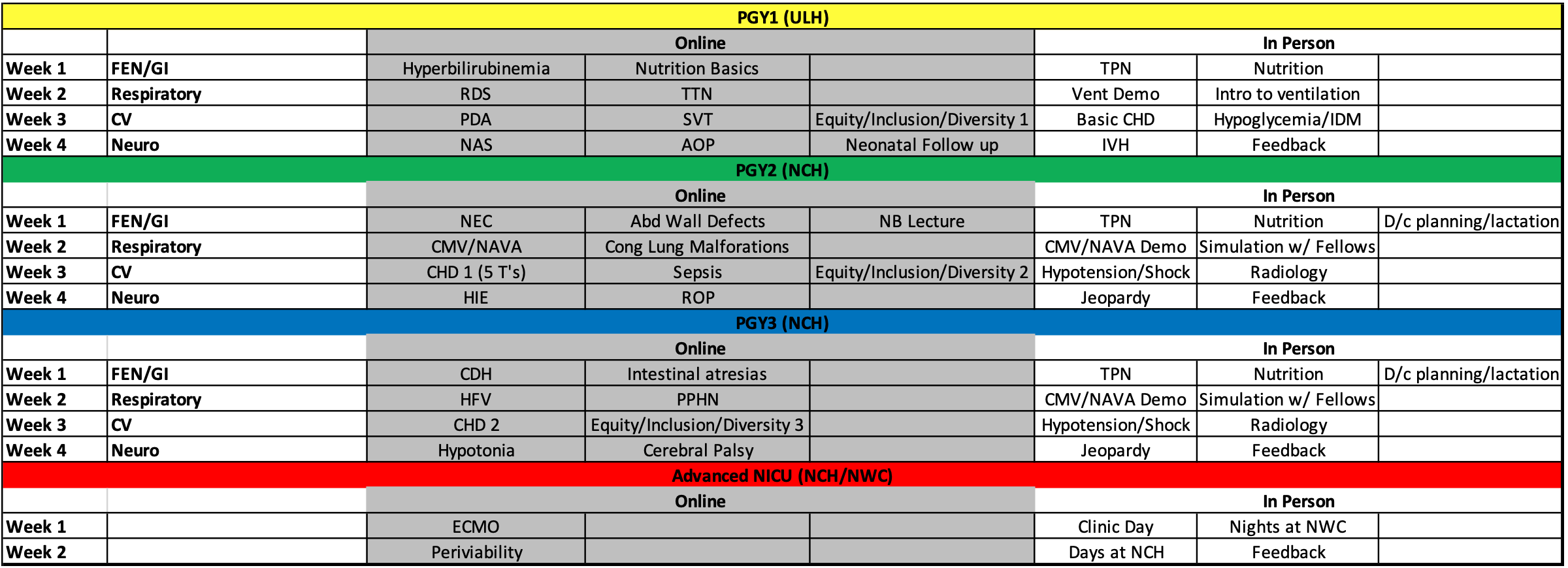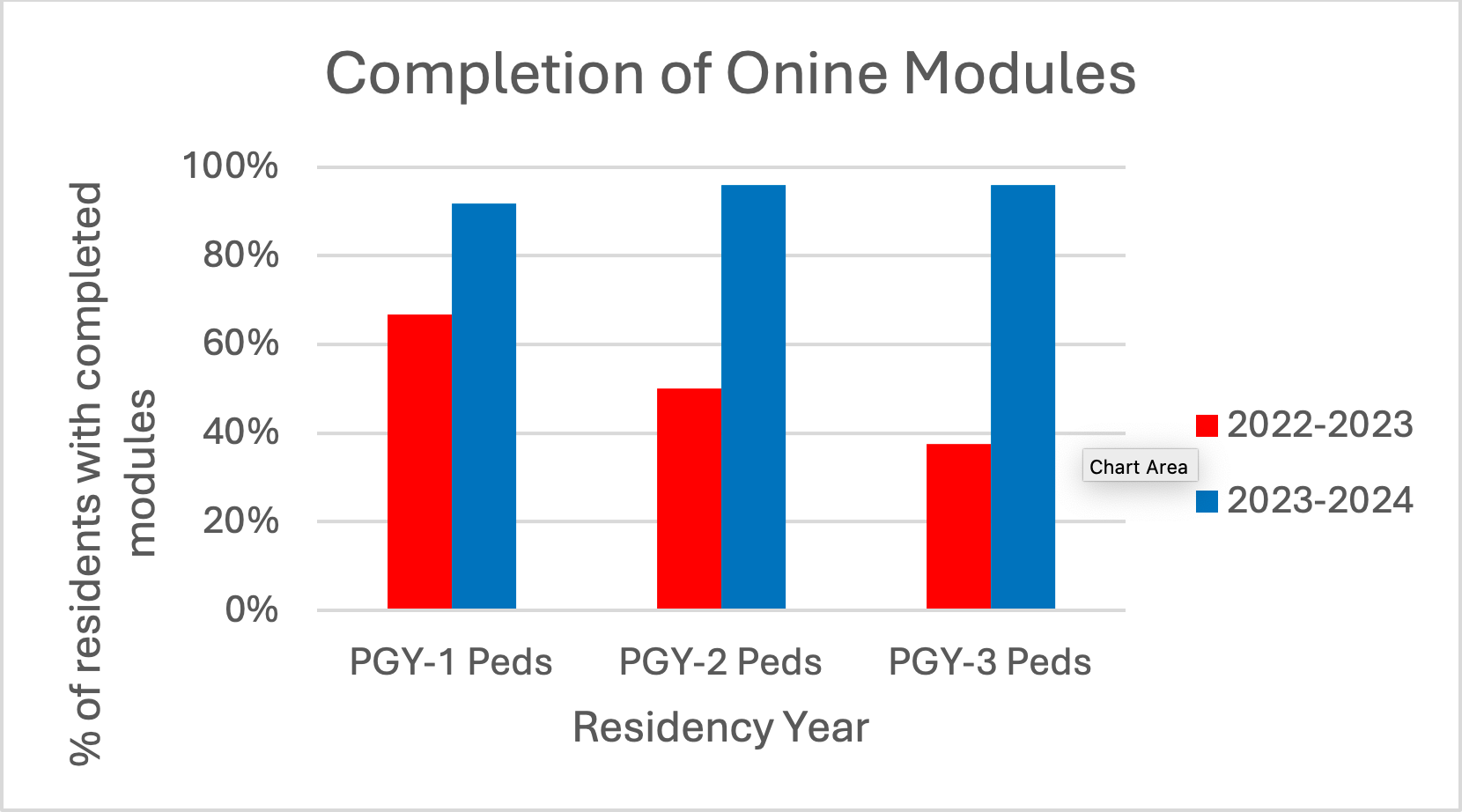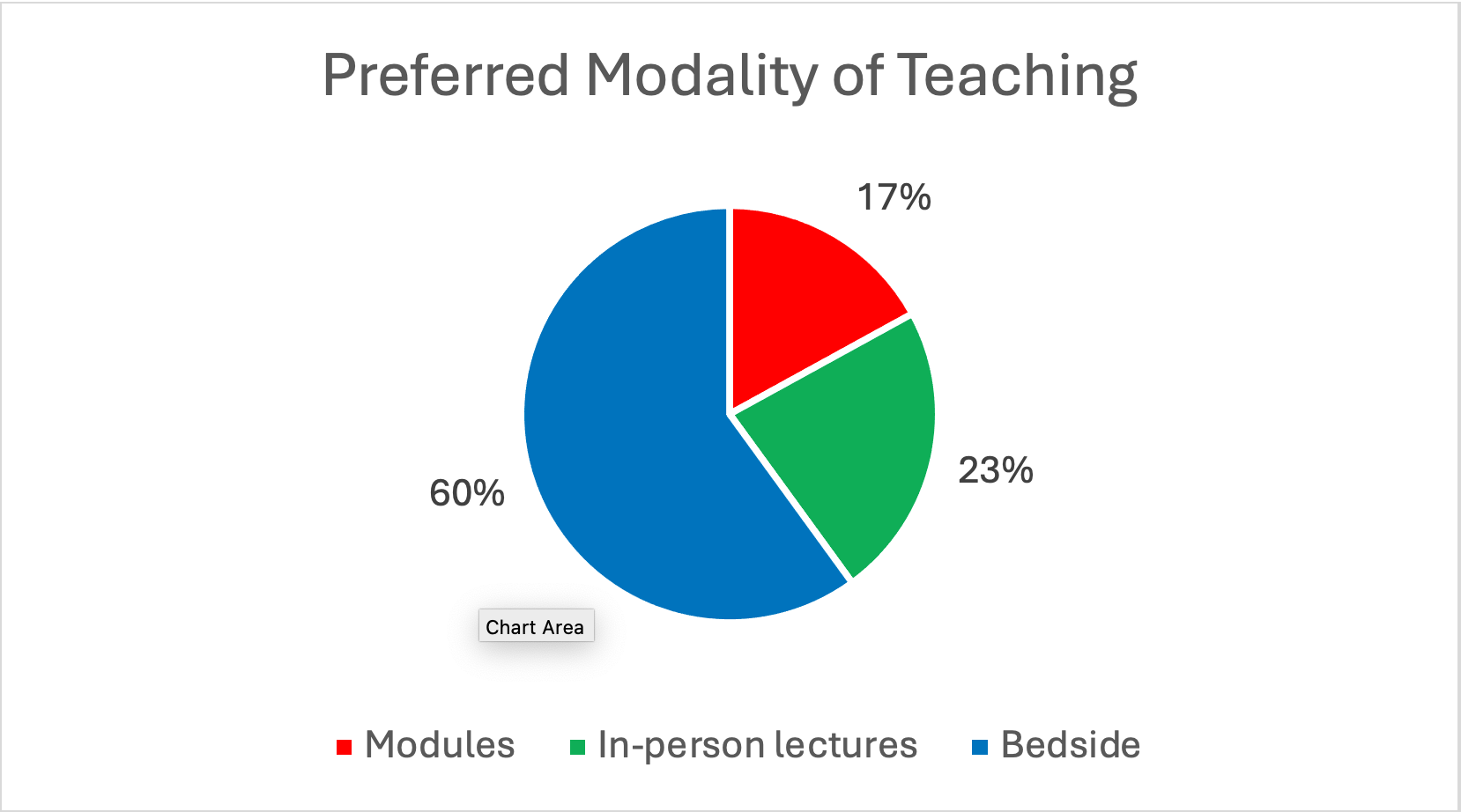Quality Improvement/Patient Safety 2
Session: Quality Improvement/Patient Safety 2
022 - Implementation of a Hybrid Neonatal Curriculum for Pediatric Residents
Friday, April 25, 2025
5:30pm - 7:45pm HST
Publication Number: 22.5408
Ryan Morales, University of Louisville School of Medicine, Louisville, KY, United States; Cynthia S. Crabtree, University of Louisville - Department of Pediatrics, Louisville, KY, United States; Amanda C. Farris, University of Louisville School of Medicine, Louisville, KY, United States; Angela Cox, University of Louisville School of Medicine, Louisville, KY, United States

Ryan Morales, DO (he/him/his)
Resident Physician
University of Louisville School of Medicine
Louisville, Kentucky, United States
Presenting Author(s)
Background: The challenges of high patient acuity and volume, complex multidisciplinary teams, and other academic demands often limit the time available for educating residents in the NICU. In addition, the new ACGME requirements will reduce the time residents spend in the NICU further decreasing exposure to essential aspects of neonatal medicine.
Objective: We developed a hybrid educational curriculum to standardize the delivery of core neonatal topics to residents during their required NICU rotations.
Design/Methods: A hybrid neonatal medicine educational curriculum for pediatric residents was created, integrating online and in-person lectures over a four-week NICU rotation. Each week has an educational focus and covers gastrointestinal, cardiovascular, respiratory, and neurology topics. The online component includes 2–3 pre-recorded lectures per week, given by faculty and fellows, complemented by 1–2 in-person lectures. This hybrid educational curriculum has been utilized since July 2022, and completion of the mandatory online lectures was tracked over time. To maintain a high rate of resident completion, bi-monthly email reminders were sent starting July 2023, and resident and faculty feedback regarding this new curriculum was elicited at the end of the academic year using an online survey.
Results: From July 2022 to June 2024, 72 categorical pediatric residents rotated through the NICU. In the first year, 51% completed all online modules; this increased to 96% after implementing reminders. A survey (43% response rate, n=31) revealed that 83% found the online modules effective, and 88% considered them concise. While all residents experienced bedside teaching, 43% felt it was “too little.” Regarding teaching quality, 65% rated it as “good or great.” Preferred content delivery methods included bedside teaching (60%), in-person lectures (23%), and online modules (17%). Faculty feedback (44% response rate, n=15) indicated 47% taught at the bedside regularly, but 33% did not provide in-person lectures. The primary barrier cited was “high patient census and acuity” (93%). While 60% of faculty felt the online curriculum was adequate, many emphasized the importance of supplementing this with in-person teaching.
Conclusion(s): A hybrid curriculum can effectively deliver core neonatal content to pediatric residents. Residents prefer bedside or in-person teaching to online modules, and faculty continue to agree that, despite the challenges, in-person and bedside teaching is critical to resident education.
Table 1: Resident Curriculum Breakdown

Chart 1: Completion of Online Modules per Academic Year

Chart 2: Preferred Modality of Teaching


